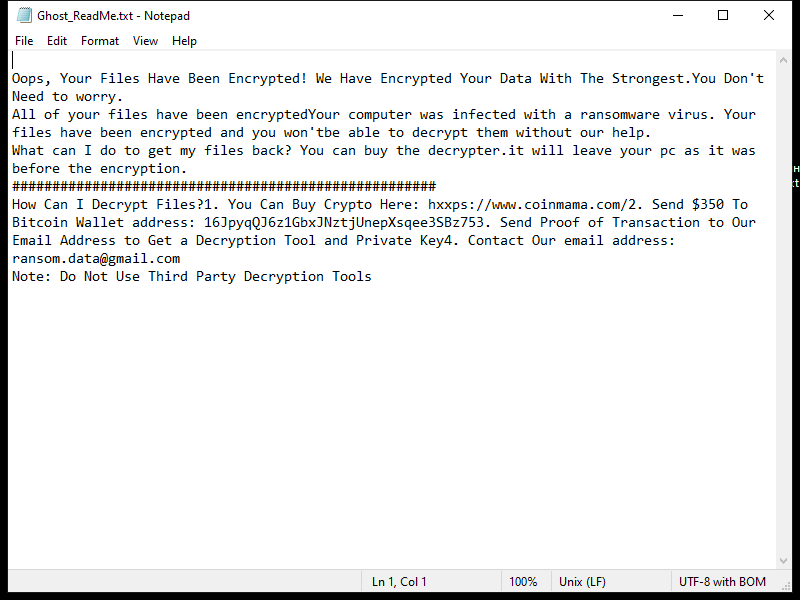Pegasus Ransomware is a type of malicious software that encrypts files on a victim’s computer and demands a ransom payment in exchange for the decryption key. It typically infects computers through phishing emails, malicious websites, or software vulnerabilities. Once installed, Pegasus Ransomware adds extensions such as .pegasus or .pegasuslocked to encrypted files. It uses strong encryption algorithms like AES or RSA to lock the files and make them inaccessible without the decryption key.
The ransomware usually creates a text file or a pop-up window with instructions on how to pay the ransom and receive the decryption key. This ransom note is often placed on the desktop or in folders containing the encrypted files.
As of now, there are no official decryption tools available for Pegasus Ransomware. However, victims are advised not to pay the ransom as it does not guarantee that they will receive the decryption key. Instead, they can try to restore their files from backups, use third-party data recovery tools, or seek help from cybersecurity professionals.
Decrypting files encrypted by Pegasus Ransomware can be a challenging and time-consuming process, especially without the decryption key. It is recommended to regularly back up important files to prevent data loss in case of a ransomware attack.

